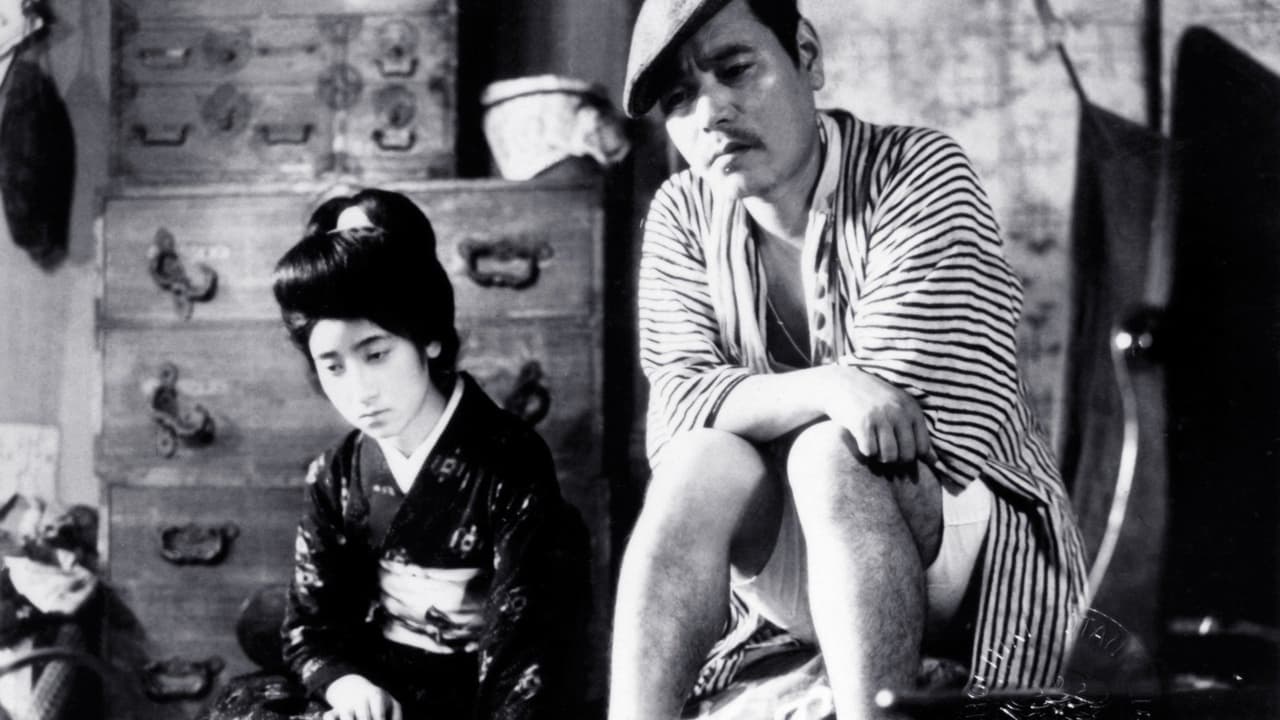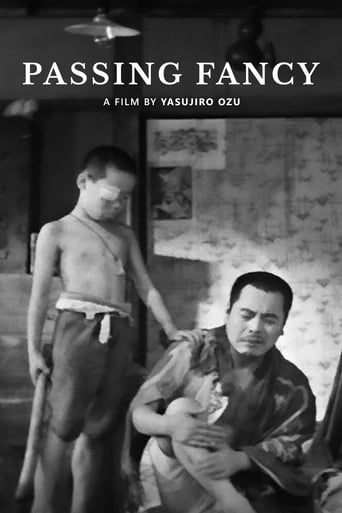Lumsdal
Good , But It Is Overrated By Some
Lollivan
It's the kind of movie you'll want to see a second time with someone who hasn't seen it yet, to remember what it was like to watch it for the first time.
Tayloriona
Although I seem to have had higher expectations than I thought, the movie is super entertaining.
Myron Clemons
A film of deceptively outspoken contemporary relevance, this is cinema at its most alert, alarming and alive.
WILLIAM FLANIGAN
Viewed on DVD. Restoration = four (4) stars. We've all been there: struggling to find the pause button in the dark on your player's remote so you will not miss anything when you are momentarily away from your viewing area. Well folks, it's not a problem with this movie. Just keep it running; when you return you will find you have missed nothing of significance! This is because nothing of significance appears to occur in this film which seems fixated on trivia, fleas (or lice), and fans. Although the actors sure try to build re pore and empathy with viewers, the director seems satisfied with the notion that trivia, fleas, and fans will carry the day. Not really! Staying with acting for the moment, it is (for the most part) first rate and you have likely seen (or will see) many of these actors before (or again)--as members of the director's acting company or, more likely, from the ranks of the studio's contract players). But the actors face a losing battle struggling with a dull script, having to scratch and fan themselves with numbing (pun intended) regularity, and less-than-inspired direction. (The plot is among the missing and the ending is flat out ridiculous!) The artificiality of a studio bound production (except for one outdoor scene) is embarrassingly obvious with small sets for both interiors and "exteriors." Cinematography suffers from the absence of deep focus. Costumes rarely change; some characters wear the same costume; it looks like the actors may have had to provide their own wardrobe. Intertitles and subtitles often occur faster than the speed of speed reading. The piano score is fine, but it's lively nature can not reanimate dead trivia. Restoration is not there yet: distracting deterioration artifacts often occur at what seems to be where reel changes took place. Criterion graphic artists are still having fun frustrating the viewer by making a game of how to turn subtitles (and the piano score) on/off. Bottom line: A padded-out featurette that goes nowhere--very slowly. WILLIAM FLANIGAN, PhD.
Frances Farmer
This rarely screened silent gem shows Ozu rather early in his career. It presents the story of a poor factory worker trying to raise his son despite many obstacles and hardships. The biggest obstacle of all is the father himself who, though well intentioned and charismatic, makes one mistake in judgment after another. The father manages to get through all his many trials and tribulations thanks to the support (not always warmly) given by his friends and neighbors.The most interesting thing for me about Passing Fancy is the way it uses a quite hard boiled, gritty realism and coarsely drawn, boorish characters to elicit very tender feelings in the viewer. The mixture of humor and pathos that advances the plot would be impossible for lesser directors or a weak cast to pull off, but in the hands of this troupe the whole enterprise succeeds wonderfully. Somehow, you may find yourself tempted to cry despite the near-total absence of sentimentality.The acting is excellent all around, but the young boy deserves special mention. To Japanese, particularly at the time, the boy's behavior must have seemed shockingly inappropriate and unfilial, but his antics and facial expressions are very funny.It is hard to believe that this is one of three movies that Ozu directed in 1933 alone. If the opportunity arises to see this movie, make every effort to see it.
alsolikelife
Takeshi Sakamoto and Tokan Kozzo team up memorably yet again as an unemployed illiterate drunk and his resentful son, in this sentimental study of working class father-son relationships. As in I WAS BORN BUT... and TOKYO CHORUS, Ozu explores how children measure their self-esteem in their parents.
Michael Kerpan (kerpan)
Dekigokoro (Passing Fancy), is one of Ozu's 3 masterpieces from 1933. It stars the second of cinematic Ozu's "alter egos", Takeshi Sakamoto. Sakamoto typically plays a down and out working class father. Here, he is especially dense, to excellent comic effect. Tomio Aoki (in probably his most significant child role) plays a kid who seems to be considerably brighter than his father -- and who does more to keep the household running. Aoki is (of course) quite funny. But he also does an excellent job of showing a child's response to unwanted change. He and his father have long depended solely on each other -- but now his father has his eye on a young woman who has moved into their slum neighborhood. Aoki very much resents his father's interest in the woman -- and resists her attempts to win his affections.This is an extremely visual film, with lots of completely "wordless" humor. The film starts out with an extended scene in a music hall (Chishu Ryu performing as the "singer") in which first a lost wallet circulates, and then a flea (or fleas). Probably not as great a family drama as the prior "I Was Born But" or the subsequent "Tokyo Inn", but nonetheless quite enjoyable.

